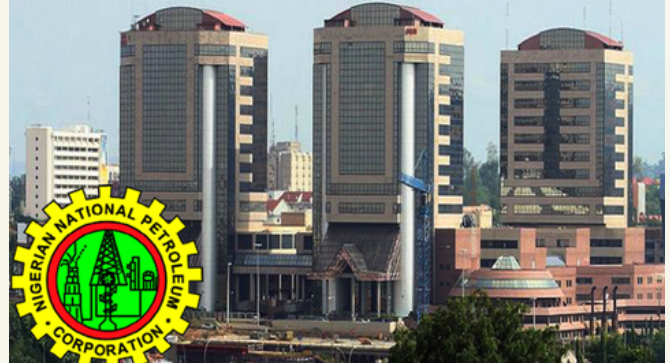The Nigeria Labour Congress says it has listed key issues that should be addressed before the Nigerian National Petroleum Corporation will adjust the pump price of Premium Motor Spirit, popularly called petrol.
It specifically stated that one of such items was that the oil firm must fix the country’s refineries in order to cut down on the importation of refined petroleum products by NNPC into Nigeria.
The Deputy President, NLC, Joe Ajaero, told our correspondent on Tuesday that labour unions made this clear to the Federal Government during the last meeting on the petrol price matter.

Ajaero disclosed this while reacting to statements by NNPC that the corporation would only adjust petrol price after the Federal Government had concluded negotiations with labour.
NNPC’s spokesperson, Kennie Obateru, had stated on Monday that the price of petrol was not going to be adjusted despite the fluctuations in global crude oil prices until the Federal Government, labour and other stakeholders agree on pricing issues.
In an interview with our correspondent, Obateru said, “The Federal Government is engaging labour and other stakeholders to agree on modalities and what would be in the best interest of all Nigerians.
“NNPC would not do anything to frustrate this by adjusting its ex-depot price until an amicable agreement is reached.”
But when contacted and asked what was delaying the meeting between labour and government on the petrol price matter, Ajaero replied that the organised labour had made its position known on the matter.
He said, “After our last meeting with them, which was both on electricity tariff and petrol price, we were clear about it and we said go and do some of the stated items and that the refineries must work.
“That is the situation. So if they are talking of endless meeting and that they are meeting with us in view of increasing the pump price of petroleum products when the refineries are not working, then it won’t work.”
He added, “We were clear about it. You must have listened to the president of the congress that we can’t drive the sector based on imports. We are not going to base the pump price of petroleum products on imports. Our refineries must work.
“So ask yourself, have they done that? So what is the essence of saying continuously that we are meeting when our position is clear to them?”
The NLC official argued that the government was still consulting with its stakeholders, stressing that the issues had yet to be resolved.
Ajaero said, “They are still consulting their stakeholders because they said they were going to consult those who sent them. We are also consulting those who sent us.
“So we have not reconvened and until we reconvene, those issues are not yet resolved.”
When told that the refineries would not be ready in more than a year, Ajaero insisted that fixing the facilities was a key requirement before adjusting petrol price.
He said, “They have to fix it because when you repair the refineries, Nigerians will work there and you will get some other products from there.
“And then all those costs such as cargo cost, landing cost; all of them will disappear and we will be good for it. Those are the issues and that is the only way it will pay us.
“We can’t get a product here and we spend much money to go and refine it and bring it back and sell it to the owners.”
Last month, the Federal Executive Council approved the plan by the Ministry of Petroleum Resources to rehabilitate the Port Harcourt Refinery with $1.5bn.
The Minister of State for Petroleum Resources, Chief Timipre Sylva, stated at the time that it would take 18 months to complete the first phase of rehabilitation to make the facility produce at 90 per cent capacity.









